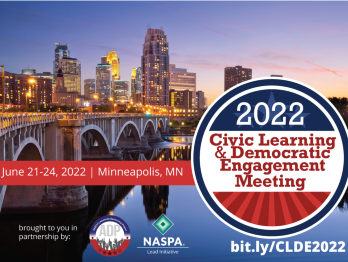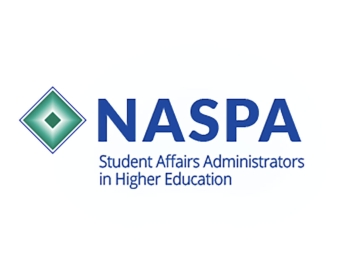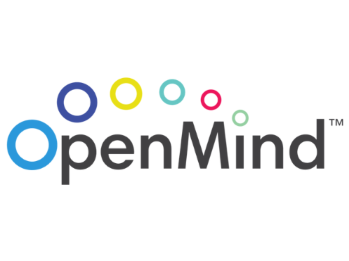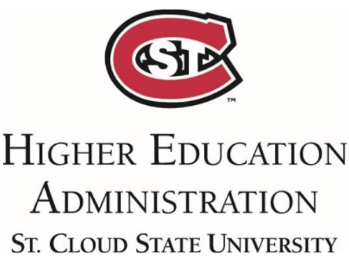
Civic Learning and Democratic Engagement Meeting 2022
In-Person Conferences
June 21 - June 24, 2022
The 2022 Civic Learning and Democratic Engagement conference brings together faculty, student affairs professionals, students, senior campus administrators, and community partners. Together, these stakeholders ensure that students graduate from colleges and universities, both public and private, are prepared to be the informed, engaged citizens are communities and democracy need.
This year's event will take place from June 21 - 24, 2022 in Minneapolis, Minnesota.
Participants will have opportunities to network and develop their civic-minded thinking and practices through engaging plenary sessions, informative general interest sessions, interactive workshops, and roundtable discussions.
Use the hashtag #CLDE22 to connect with other attendees at the conference and see what everyone is talking about!
Presented By

About
The 2022 Civic Learning and Democratic Engagement meeting (CLDE22) is a conference intended to facilitate exchanges of knowledge and develop a sense of community around our shared civic learning and democratic engagement work. This meeting is designed around the CLDE Theory of Change, which poses four important questions.
- Purpose: What are the key features of the thriving democracy we aspire to enact and support through our work?
- Learning Outcomes: What knowledge, skills, and dispositions do people need in order to help create and contribute to a thriving democracy?
- Pedagogy: How can we best foster the acquisition and development of the knowledge, skills, and dispositions necessary for a thriving democracy?
- Strategy: How can we build the institutional culture, infrastructure, and relationships needed to support learning that enables a thriving democracy?
In addition to the session type, proposals need to include the following:
- Session Title (10-12 words)
- Program Abstract (80 words)
- Program Outline/Description
- Presenters Bios and Contact Information
Civic Ethos of Campus
Civic Ethos of campus: The infusion of democratic values into the customs and habits of everyday practices, structures, and interactions; the defining character of the institution and those in it that emphasizes open-mindedness, civility, the worth of each person, ethical behaviors, and concern for the well-being of others; a spirit of public-mindedness that influences the goals of the institution and its engagement with local and global communities.
Civic Literacy and Skill Building
Civic Literacy & Skill Building as a goal for every student: The cultivation of foundational knowledge about fundamental principles and debates about democracy expressed over time, both within the United States and in other countries; familiarity with several key historical struggles, campaigns, and social movements undertaken to achieve the full promise of democracy; the ability to think critically about complex issues and to seek and evaluate information about issues that have public consequences.
Civic Inquiry
Civic Inquiry integrated within the majors and general education: The practice of inquiring about the civic dimensions and public consequences of a subject of study; the exploration of the impact of choices on different constituencies and entities, including the planet; the deliberate consideration of differing points of views; the ability to describe and analyze civic intellectual debates within one’s major or areas of study.
Civic Action as Lifelong Practice
Civic Action as lifelong practice: The capacity and commitment both to participate constructively with diverse others and to work collectively to address common problems; the practice of working in a pluralistic society and world to improve the quality of people’s lives and the sustainability of the planet; the ability to analyze systems in order to plan and engage in public action; the moral and political courage to take risks to achieve a greater public good.
Civic Agency
Civic Agency involves the capacities of citizens to work collaboratively across differences like partisan ideology, faith traditions, income, geography, race, and ethnicity to address common challenges, solve problems and create common ground; requires a set of individual skills, knowledge, and predispositions; also involves questions of institutional design, particularly how to constitute groups and institutions for sustainable collective action.
Call for Programs
We welcome your submission and invite you to help shape the conversation about the future of civic learning and democratic engagement at this moment in our country's history. The CLDE planning committee encourages collaborative proposals that feature the work of more than one campus and that are data-driven in their approach. We also encourage proposals that include audience engagement as part of the session.
Questions?
Please contact NASPA if you have any further questions about submitting a program proposal for the 2022 Civic Learning and Democratic Engagement meeting.
Dr. Jill Dunlap
Senior Director for Research, Policy, and Civic Engagement, NASPA
Phone: (202) 719-1196
Email: [email protected]
Cathy Copeland
Director, American Democracy Project, American Association of State Colleges and Universities (AASCU)
Phone: (202) 478-7833
Email: [email protected]
Registration
Registration is open for the 2022 Civic Learning and Democratic Engagement (CLDE22) conference.
The registration fee includes all regular program sessions. The registration site requires you to create a NASPA account in order to register for the conference. There is no cost to create an account. The registration rate is the same for AASCU and NASPA members as well as non-members.
|
Registrant Type |
Early Bird Rate |
Regular Rate |
Late Rate |
|
General Registration |
$525 |
$595 |
$665 |
|
Student Registration |
$360 |
$360 |
$360 |
|
Team (4 or more individuals from the same institution) |
$475 per person |
$545 per person |
|
Registration rate for students is for undergraduates and full-time graduate students at AASCU/ADP and NASPA colleges and universities.
*PLEASE NOTE that in order to obtain the team rate, you must contact Jill Dunlap at [email protected] with the names of the team members you wish to register (each team member must be from the same institution to qualify). Before registering, you will need to ensure that each team member already has an acount in the NASPA system which is free to create. The team rate is available until June 13, 2022.
We encourage you to register for pre-conference sessions and site visits during the registration process. Details of the pre-conference sessions and site visits are listed in the Schedule section.
Sponsorship
The 2022 Civic Learning and Democratic Engagement conference is your opportunity to take a cross-functional approach to student engagement when it has never been more important.
Have questions? You can call Fred Comparato 202-719-1179
Thank You to Our Sponsors!
Schedule
All times listed are Central Standard Time.
The power point template for CLDE22 presenters can be found here.
Schedule
June 21
June 22
June 23
June 24
9:00 AM - 12:00 PM
How to Combat Racism and Misinformation using Digital Literacy
Details
These are optional sessions that are available for an additional $50.
The current historical moment demands accountability. To understand the racialized misinformation and disinformation surrounding current events—the confirmation of Ketanji Brown Jackson and the spread of the QAnon conspiracy, to take just two recent examples—knowledge workers must be able to account for the history of mediated representation of racism that informs and sustains these tropes, these frames for viewing race in today’s hyper-partisan, polarized climate. This workshop takes seriously the assumption that to effectively recognize, analyze, and intervene in information pollution in all its multifarious guises, including those that traffic in racist tropes and narratives, students and teachers and others who are fighting for racial justice must become more attuned to the mediated representations of the past: the narratives, images, tropes, and memes, including those found in media and advertising, that everywhere and always color Black Americans’ experience of the American democratic experiment.
Over the course of this interactive pre-conference workshop, we will (1) offer examples of these mediated representations of racism and delve into their history; (2) explore images and discuss how these representations shape what Phillips and Milner (2021) call the “deep memetic frames” of contemporary information disorder (i.e., disinformation, misinformation, and malinformation) (Wardle & Derakhshan, 2017); and (3) provide annotated writing prompts and project assignments that help students develop critical thinking and digital literacy skills that can help them not only recognize contemporary examples, but also unpack the historical roots of racist misinformation in American public life. A portion of our time together during this workshop will be used to view a short documentary on representations of race in media and advertising. Presented by Paul Cook (Indiana University Kokomo) and Byron Craig (Illinois State University).
9:00 AM - 12:00 PM
Deploying Deliberative Dialogues on Campus
Details
These are optional sessions that are available for an additional $50.
AASCU’s The American Democracy Project presents a pre-conference session to help democracy thrive through deliberation. The session will explore and practice deliberative dialogues and moderation. Deliberative dialogues are guided conversations on a political, controversial, or wicked topic; they aim to push beyond polarizing positions, find common ground and shared values, humanize stakeholders, uncover nuance, and potentially provide a solution-focused approach to addressing complicated issues. In this workshop, participants will learn what deliberative dialogues are and aren’t, practice moderating a session, and explore some resources to bring back home. This is a 3-hour workshop for faculty, staff, and students at higher education institutions led by Steven Koether (Sam Houston State), Kara Lindaman (Winona State), and Harriett Steinbach (Illinois State).
2:00 PM - 5:00 PM
The Extending Empathy Project: Creating an EDI Culture on Campus
Details
These are optional sessions that are available for an additional $50.
Are you concerned about the growing lack of empathy we are witnessing across multiple levels of our culture, including personal interaction, group communication, and political discourse? This workshop will expose participants to various aspects of Illinois State University’s sponsored colloquia series, and the impacts they had on viewers. The final, culminating colloquium took place as commemoration of the centennial anniversary of the Tulsa Massacre of 1921. Participants will have the opportunity to discuss colloquium speakers and how this information collected can be used to create a national movement to expanding empathy in a collective movement. An online diary system will allow participants to record their reactions to the YouTube video prior to the workshop, and then keep track of their views on empathy following the workshop. Participants will explore (1) extending empathy into infrastructures and the neuroscience of empathy, (2) the dangers and pitfalls of extending empathy to traumatized persons, (3) empathy and racial identity development, (4) reducing the moral empathy gap in political conversation, (5) why we often find it hard to listen to others, (6) the difficulty of extending empathy to those we would rather avoid, and (7) the first-person experience of extending as well as being denied, empathy. Led by the Illinois State University team of J. Scott Jordan, Stephen Hunt, Byron Craig, and Nathan Carpenter.
1:00 PM - 4:00 PM
• The Role of Students’ Voices in Equity and Democracy in Higher Education
Details
These are optional sessions that are available for an additional $50.
As institutions seek to become more student-centered, a critically important question is how do we incorporate the students' voices and experiences in higher education? Institutional outcomes and students' educational experiences can be improved when students' voices are included throughout the student life cycle and in decision-making. Join AASCU colleagues as we explore approaches to capturing and operationalizing students' voices to strengthen equity and democracy at our institutions.
2:00 PM - 5:00 PM
Climate Change as a Democratic Imperative
These are optional sessions that are available for an additional $50.
8:45 AM - 9:45 AM
CLDE Orientation
10:00 AM - 1:00 PM
Site visits (optional; additional cost)
These are optional and come with an additional cost.
10:00 AM - 12:00 PM
Special Topics Workshops (available to all participants)
These are longer workshops sessions on special topics that are being offered free to participants.
12:00 PM - 1:30 PM
Sponsored lunches
1:30 PM - 3:00 PM
Meetings for ADP and Community College Groups
3:30 PM - 5:00 PM
Opening Plenary
5:15 PM - 6:30 PM
Opening reception and poster presentations
10:00 AM - 1:00 PM
Indigenous Peoples & the Wakan Tipi Center
Details
Lower Phalen Creek Project (LPCP) staff, led by executive director Maggie Lorenz (Turtle Lake Band of Ojibwe/Spirit Lake Dakota) will guide a tour of the Bruce Vento Nature Sanctuary. This habitat restoration site contains the now-desecrated and ancient cave Wakáŋ Tipi, which means Dwelling Place of the Sacred in the Dakota language. LPCP will share its vision for reclaiming the sanctuary as a sacred site and creating a new gathering place for cultural learning, celebration and exchange, also named Wakáŋ Tipi Center. We will visit Gatherings Café, a restaurant inside the American Indian Center in Minneapolis, on the return to the hotel; lunch not included in price.
Site Visit - $50 fee.
10:00 AM - 1:00 PM
Generating Campus and Community Food Security
Details
This exploration of food security partnerships in and around Metropolitan State is aimed at inspiring ways to build similar connections in participants’ home campuses and communities. The visit will feature walks through produce gardens managed by faculty, students and our lead community partner Urban Roots, discussion of the campus Food for Thought Food Pantry and food distribution partnerships, and a tour of the recently-completed GROW-IT Center facility, which has served as a hub for community-university learning and exchange on urban food production, healthy food access and environmental restoration. Urban Roots youth interns, guided by a local chef, will prepare our meal!
Site visit - $50 fee, includes a light lunch.
7:00 AM - 8:30 AM
Breakfast Available
8:30 AM - 10:20 PM
Concurrent sessions
10:30 AM - 12:00 PM
Workshop sessions
12:00 PM
Lunch (on your own)
1:30 PM - 2:20 AM
Concurrent Sessions
2:30 PM - 4:00 PM
Workshop Sessions
4:15 PM - 5:30 PM
Plenary session
6:00 PM - 7:00 PM
Private Receptions
7:00 AM - 8:15 AM
Breakfast Available
8:30 AM - 9:20 AM
Concurrent sessions
9:30 AM - 10:20 AM
Concurrent Sessions
10:30 AM - 11:30 AM
Closing remarks and meeting adjournment
Venue

Minneapolis Marriott City Center
30 S 7th Street
Minneapolis, MN
United States, 55402
(612) 349-4000
All conference activities, other than the site visit, will take place at the Minneapolis Marriott City Center.
*The group rate for this event is available online through Tuesday, May 31, 2022!

